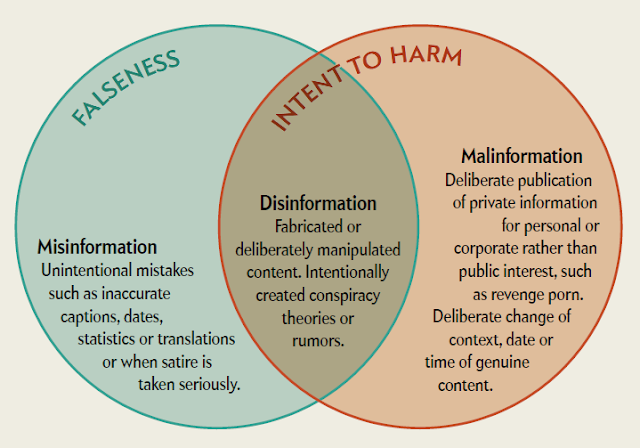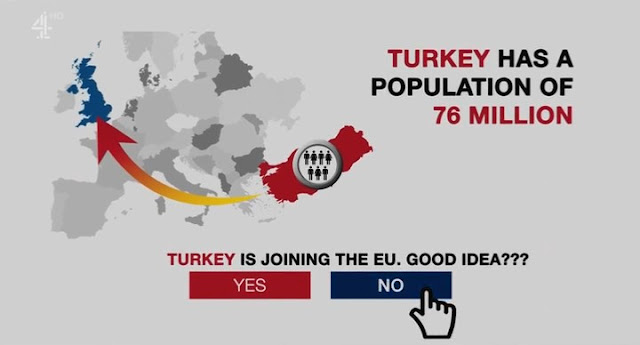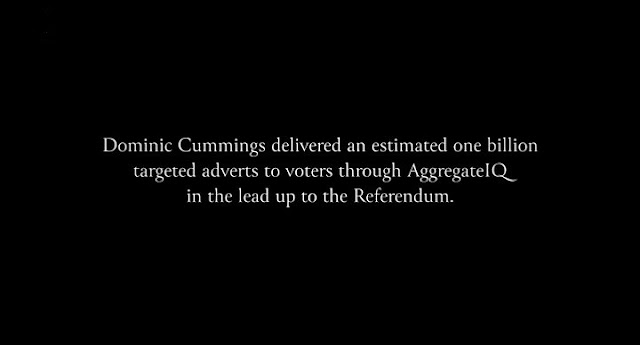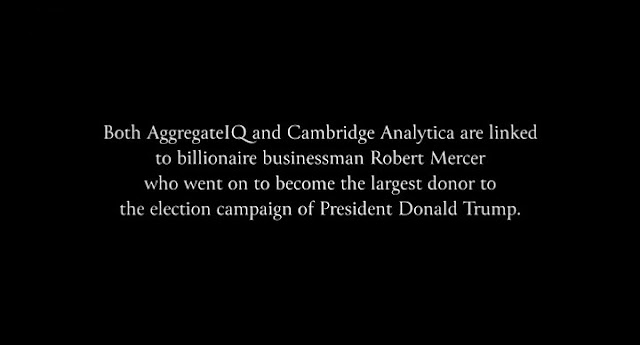Who controls the Past controls the Future
Who controls the Present controls the Past
— George Orwell (1903 – 50), Nineteen Eight-Four, 1949.
The struggle of Man against Power
Is the struggle of Memory against Forgetting
— Milan Kundera (1929), The Book of Laughter and Forgetting, 1979.
Three Categories of Information Disorder

(Claire Wardle, A New World Disorder, Scientific American, September 2019, p 90)
Edward Bernays (1891 – 1995):
The conscious and intelligent manipulation of the organized habits and opinions of the masses is an important element in democratic society.
Those who manipulate this unseen mechanism of society constitute an invisible government that is the true ruling power of this country.
We are governed, our minds molded, our tastes formed, our ideas suggested, largely by men we have never heard of. …
In almost every act of our daily lives, whetherwe are dominated by the relatively small number of persons … who understand the mental processes and social patterns of the masses.
- in the sphere of politics or business, [or]
- in our social conduct or our ethical thinking,
It is they who:(Organizing Chaos, Propaganda, Chapter 1, 1928, emphasis added.
- pull the wires [that] control the public mind,
- harness old social forces, and
- contrive new ways to bind and guide the world.
Stuart Ewen (1945) [Historian of Public Relations]:
[In a consumer society, it's] not that the people are in charge, but that the people's desires are in charge.
Paul Mazur [Lehman Brothers]:
We must shift … from a needs to a desires culture.
People must be trained to desire — to want new things even before the old have been entirely consumed.
We must shape a new mentality …
Man's desires must overshadow his needs.
(Adam Curtis, Happiness Machines, The Century of the Self, Episode 1, 2002)
Propaganda:
A concerted set of messages aimed at influencing the opinions or behavior of large numbers of people.
(Wiktionary, 16 February 2013)
Danny Glover:
Every aspect of our lives — from what we buy, what is sold to us, who produces it — all those things are connected.
It's not only a monopoly of wealth, it's a monopoly of information …
Noam Chompsky (1928):
The United States is unusual among the industrial democracies in the rigidity of the system of ideological control … exercised through the mass media.
(Jean-Philippe Tremblay, Shadows of Liberty, 2012)
Thomas Paine (1737 – 1809):
When men yield up the exclusive privilege of thinking, the last shadow of liberty quits the horizon.
(1776)
Edward Murrow (1908 – 1965):
We must remember always, that accusation is not proof, and that conviction depends upon evidence and due process of law.
We will not walk in fear, one of another.
We will not be driven by fear into an age of unreason if we dig deep into our history and our doctrine, and remember that we are not descended from fearful men.
Not from men who feared to write, to associate, to speak, and to defend the causes that were for the moment unpopular.
This is no time for men who oppose Senator McCarthy's methods to keep silent …
We can deny our heritage and our history but we cannot escape responsibility for the result.
We proclaim ourselves as indeed we are, the defenders of freedom wherever it continues to exist in the world.
But we cannot defend freedom abroad by deserting it at home. …
[Our] history will be what we make it.
If we go on as we are, then history will take its revenge, and retribution will not limp in catching up with us.
Just once in a while let us exalt the importance of ideas and information. …
Good night, and good luck.
(George Clooney, Good Night, and Good Luck, 2005)
Ours For The Taking
We have fought [and won] without a single bullet being fired.
— Nigel Farage (1964), 24 June 2016.
There's a systems failure in this country and across the West.
We're languishing.
We're drifting without a vision or a purpose.
What do you do … when there's a systems failure?
You reset.
— Dominic Cummings (1971)
Craig Oliver (1969) [Director of Communications for David Cameron, 2011–16]:
There's the danger [with the Brexit referendum] of having unleashed something which we can't then control.
Michael Gove (1967) [Conservative Cabinet Minister]:
[David Cameron] said, if I get what I want, and we win this, it will destroy him.
Dominic Cummings (1971) [Political Strategist]:
[The social network data miners at AggregateIQ have found] 3 million potential voters not on any voter database …
Remain have no idea they exist.
If we can reach 'em, they're ours for the taking.





